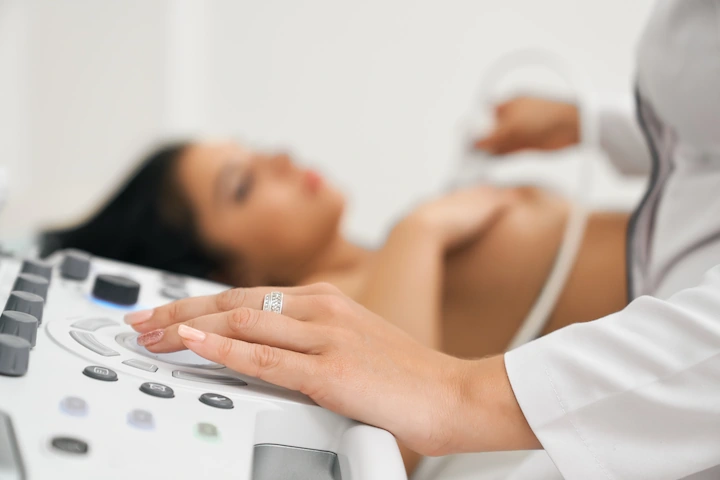How to Detect Ruptured Implants

Caring for breast implants goes beyond the initial surgery. It is crucial to provide proper care and regularly monitor your implants to ensure longevity and detect any potential complications.
While rare, implant ruptures are a common concern among breast augmentation and breast reconstruction patients. Whether you have breast implants for cosmetic or reconstructive reasons, proactively monitoring for signs of rupture promotes peace of mind.
Understanding breast implant ruptures
A rupture occurs when the implant’s outer shell sustains a tear or hole, allowing the silicone or saline to leak. While ruptures are relatively rare, they can result from a variety of factors like trauma, wear and tear, or manufacturing defects. It is essential to detect and address ruptures promptly to minimize potential health risks and to provide peace of mind.
What are the signs of a ruptured implant?
If you have saline implants, a rupture is much easier to detect as typically your breasts will appear visibly deflated.
Signs of silicone implant rupture are not always as obvious. Unlike saline that releases quickly from the ruptured implant, silicone is ultra-thick and slowly leaks over time.
Depending on the severity and age of the tear, you may or may not notice changes in breast size, shape, and firmness. Some patients may also experience pain, swelling, or capsular contracture as a result of a leaky implant.
So, what happens if you don’t have any of these symptoms? How will you know if you have a ruptured implant? This is why it’s important to use undergo regular screening to detect issues and intervene before a ruptured implant becomes problematic.
Screening guidelines for breast implants
The Food & Drug Administration (FDA) recommends women begin screening for breast implant ruptures 5 years surgery and thereafter, every 2-3 years. Ultrasound and MRI are the gold-standard imaging technologies used for detecting implant abnormalities.
Using ultrasound to detect implant ruptures
Ultrasound imaging utilizes high-frequency sound waves to create real-time images of the breast tissue and implants. It’s quick, safe, painless, and offers many distinct benefits:
- Non-Invasive and Radiation-Free: Ultrasound is a non-invasive imaging technique that does not involve radiation exposure. An ultrasound technologist gently glides a hand-held transducer over the chest, as sound waves produce detailed images.
- Real-Time Imaging: Ultrasound allows for real-time visualization of the breast tissue and implants. It enables healthcare professionals to observe the implant and surrounding structures, assessing for any signs of rupture.
- Cost-Effective: Compared to other imaging techniques, ultrasound is generally more affordable, making it a cost-effective option for routine breast implant screening. This accessibility ensures broader availability for patients seeking regular monitoring.
- Efficient and Convenient: Ultrasound examinations are generally quick and convenient. They can be performed in outpatient settings, allowing patients to undergo regular screenings with ease and minimal disruption to their daily routines.
How To Schedule Your Ultrasound Appointment
A breast ultrasound is performed at an imaging center or breast clinic. If you don’t already have a provider managing your breast health and are under 40, you may need a referral from your OBGYN, general practitioner, or plastic surgeon.
When making your ultrasound appointment, it’s important to let the scheduler know if you already suspect a rupture, so that they can schedule you appropriately.
Cassileth Plastic Surgery & Skin Care is proud to refer patients to our sister practice, Bedford Breast Center. Conveniently located next door to our office, Bedford Breast Center is the premier breast center in greater Los Angeles.
The team of ultrasound technologists, radiologists, and breast specialists provide patients with an unmatched level of care. If you need to undergo screening after your breast implant surgery, Bedford Breast Center would be happy to manage your needs

Lets Chat!
Contact Us
We believe that the connection between the patient and the provider is at the heart of every successful procedure and look forward to meeting you in person to discuss your goals.
